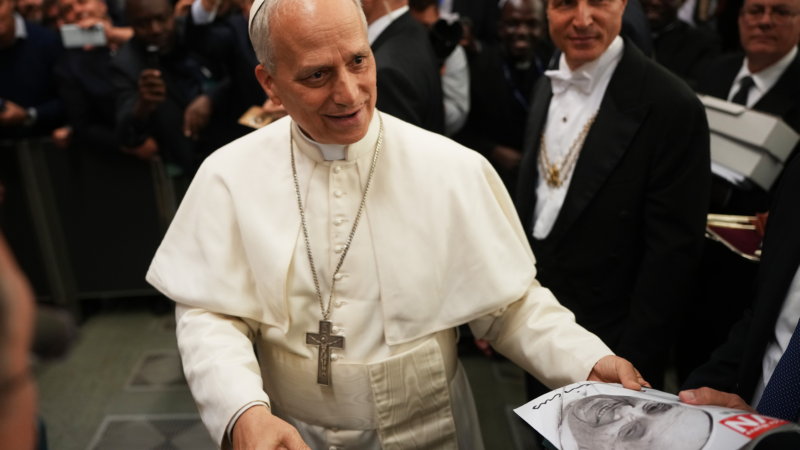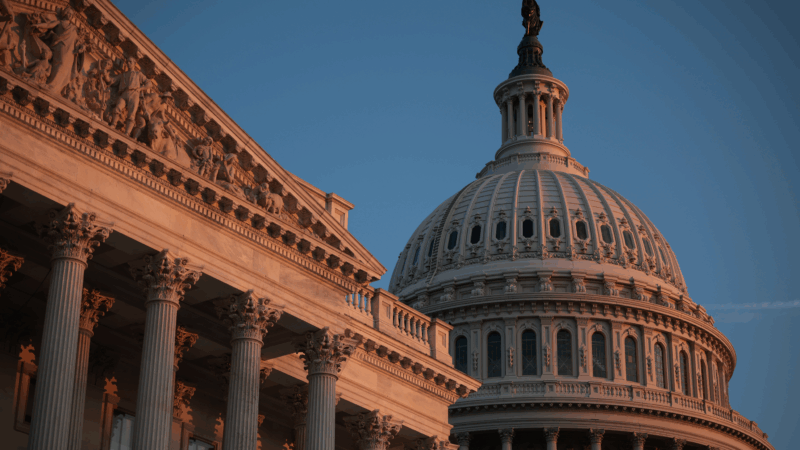Pope Leo XIV asks journalists to use communication as a tool for peace
VATICAN CITY — “The way we communicate is of fundamental importance: we must say ‘no’ to the war of words and images, we must reject the paradigm of war,” according to Pope Leo XIV in an address to journalists this morning. He implored them to use communication as a tool for peace.
Referencing Pope Francis’ message from the World Day of Social Communications in January, Leo said, “Let us disarm communication of all prejudice and resentment, fanaticism and even hatred; let us free it from aggression. We do not need loud, forceful communication, but rather communication that is capable of listening and of gathering the voices of the weak who have no voice.”
Leo also reiterated the Church’s solidarity with imprisoned journalists and called for their release.
“The Church recognizes these witnesses — I am thinking of those who report on war even at the cost of their lives — the courage of those who defend dignity, justice and the right of people to be informed, because only informed individuals can make free choices.”
The remarks come just one day after the pope called for a ceasefire and access to humanitarian aid in Gaza and an end to the war in Ukraine.
Leo also spoke about the challenges the Church and the media face in a changing world, including artificial intelligence. He said that “responsibility and discernment” are required to ensure that technology can be used for the good of all, and he emphasized the importance of this moment in history.
“We are living in times that are both difficult to navigate and to recount. They present a challenge for all of us, but it is one that we should not run away from. On the contrary, they demand that each one of us, in our different roles and services, never give in to mediocrity.”
Just before blessing those gathered at Paul VI Audience Hall, and shaking the hands of seasoned Vatican journalists, Leo concluded by saying, “I ask you to choose consciously and courageously the path of communication in favor of peace.”
Team USA faces tough Canadian squad in Olympic gold medal hockey game
In the first Olympics with stars of the NHL competing in over a decade, a talent-packed Team USA faces a tough test against Canada.
PHOTOS: Your car has a lot to say about who you are
Photographer Martin Roemer visited 22 countries — from the U.S. to Senegal to India — to show how our identities are connected to our mode of transportation.
Sunday Puzzle: TransformeR
NPR's Ayesha Rascoe plays the puzzle with listener Joan Suits and Weekend Edition Puzzlemaster Will Shortz.
Looking for life purpose? Start with building social ties
Research shows that having a sense of purpose can lower stress levels and boost our mental health. Finding meaning may not have to be an ambitious project.
Danish military evacuates US submariner who needed urgent medical care off Greenland
Denmark's military says its arctic command forces evacuated a crew member of a U.S. submarine off the coast of Greenland for urgent medical treatment.
Only a fraction of House seats are competitive. Redistricting is driving that lower
Primary voters in a small number of districts play an outsized role in deciding who wins Congress. The Trump-initiated mid-decade redistricting is driving that number of competitive seats even lower.






